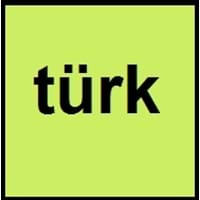Turkish vs Galician
- Turkish language oldest written records are found upon stone monuments in Central Asia, in Orhun, Yenisey and Talas regions.
- Turkish language was developed in the Middle East, streching all the way to Eastern Europe.
- In Galician language, there are no compound tenses.
- The earliest document in Galician language was written in 1228 which was legal charter for a municipality of Galicia.
Turkish and Galician Language History
Comparison of Turkish vs Galician language history gives us differences between origin of Turkish and Galician language. History of Turkish language states that this language originated in c. 1350 whereas history of Galician language states that this language originated in c. 1175. Family of the language also forms a part of history of that language. More on language families of these languages can be found out on Turkish and Galician Language History.
Turkish and Galician Greetings
People around the world use different languages to interact with each other. Even if we cannot communicate fluently in any language, it will always be beneficial to know about some of the common greetings or phrases from that language. This is where Turkish and Galician greetings helps you to understand basic phrases in Turkish and Galician language. Turkish word for "Hello" is Merhaba or Galician word for "Thank You" is Grazas. Find more of such common Turkish Greetings and Galician Greetings. These greetings will help you to be more confident when conversing with natives that speak these languages.
Turkish vs Galician Difficulty
The Turkish vs Galician difficulty level basically depends on the number of Turkish Alphabets and Galician Alphabets. Also the number of vowels and consonants in the language plays an important role in deciding the difficulty level of that language. The important points to be considered when we compare Turkish and Galician are the origin, speaking countries, language family, different greetings, speaking population of these languages. Want to know in Turkish and Galician, which language is harder to learn? Time required to learn Turkish is 44 weeks while to learn Galician time required is Not Available.





